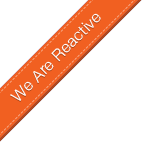Leveraging as much of the built-in power of the F# language and libraries as possible when solving a problem.
So without further ado (other than to note that all the code here is presented "as-is" and without warranty or implied fitness of any kind; use at your own risk) here is my Cartesian product of lists code. It’s fairly compact, but there may be even more succinct solutions.
// Cartesian product of a list of lists.let rec cart nll =
let f0 n = function
| [] -> [[n]]| nll -> List.map (fun nl->n::nl) nll
match nll with
| [] -> []| h::t -> List.collect (fun n->f0 n (cart t)) h
// Test.let s =
[
[0;1;2;];
[3;4;];
[5;6;7;];
]
cart s |> List.iter (printfn "%A")
And here's a transliteration into sequences (but there may be a better way):
// Cartesian product of a seq of seqs.let rec carts (nss:seq<seq<int>>) =
let f0 n (x:seq<seq<int>>) =
match Seq.isEmpty x with
| true -> seq{yield seq{yield n}}
| _ -> Seq.map (fun nl->seq{yield n;yield! nl}) x
match Seq.isEmpty nss with
| true -> Seq.empty
| false ->
Seq.collect (fun n->f0 n (carts (Seq.skip 1 nss)))
(Seq.head nss) 


No comments:
Post a Comment